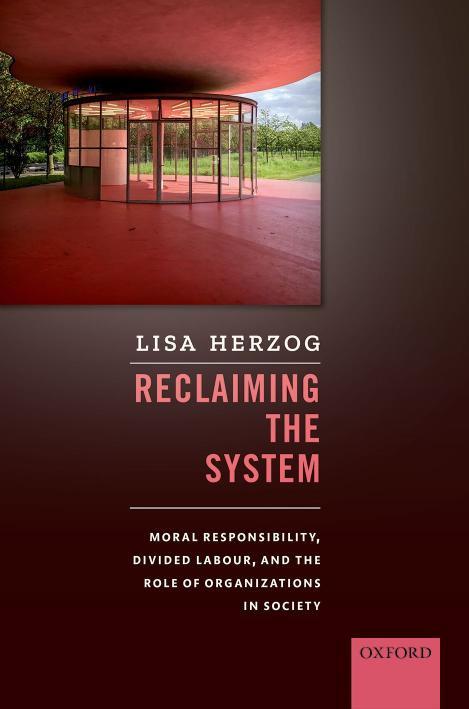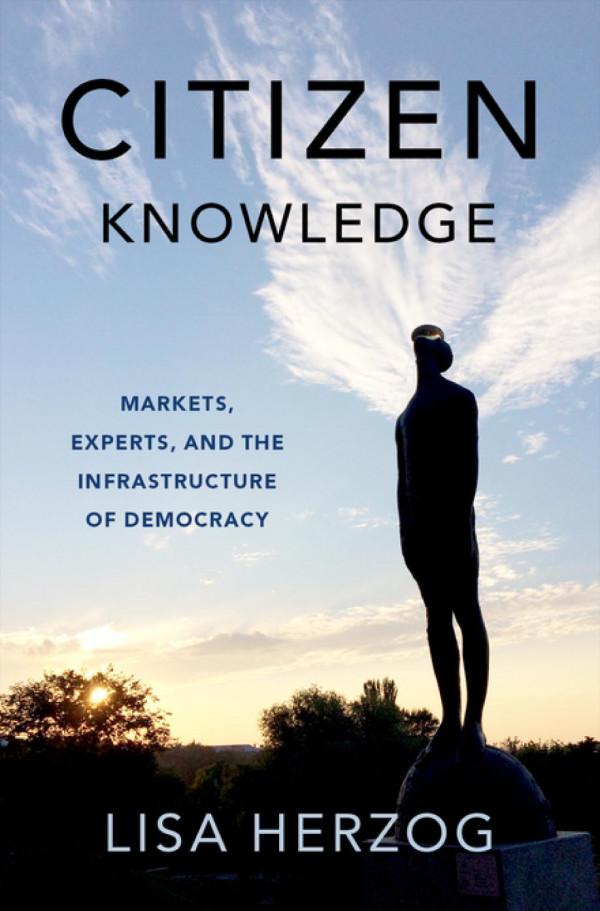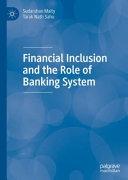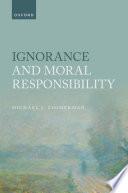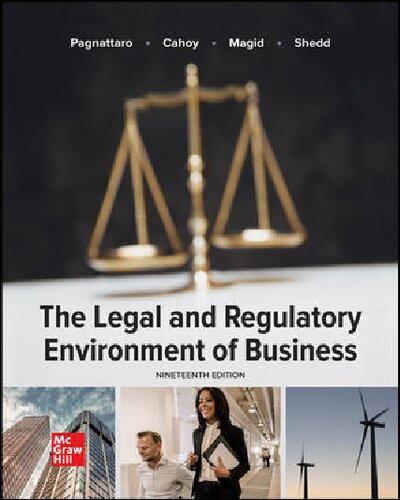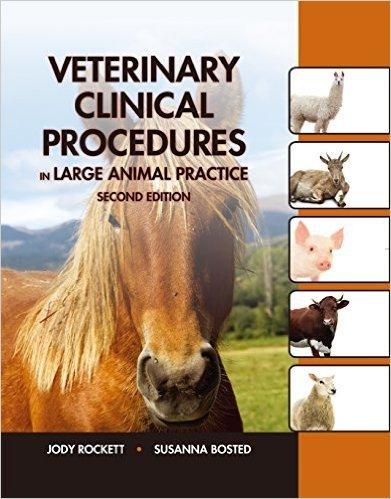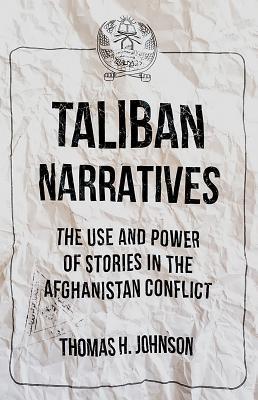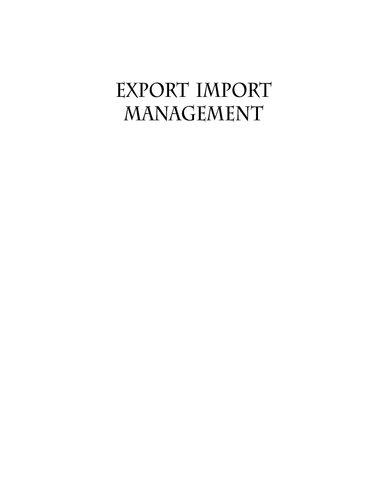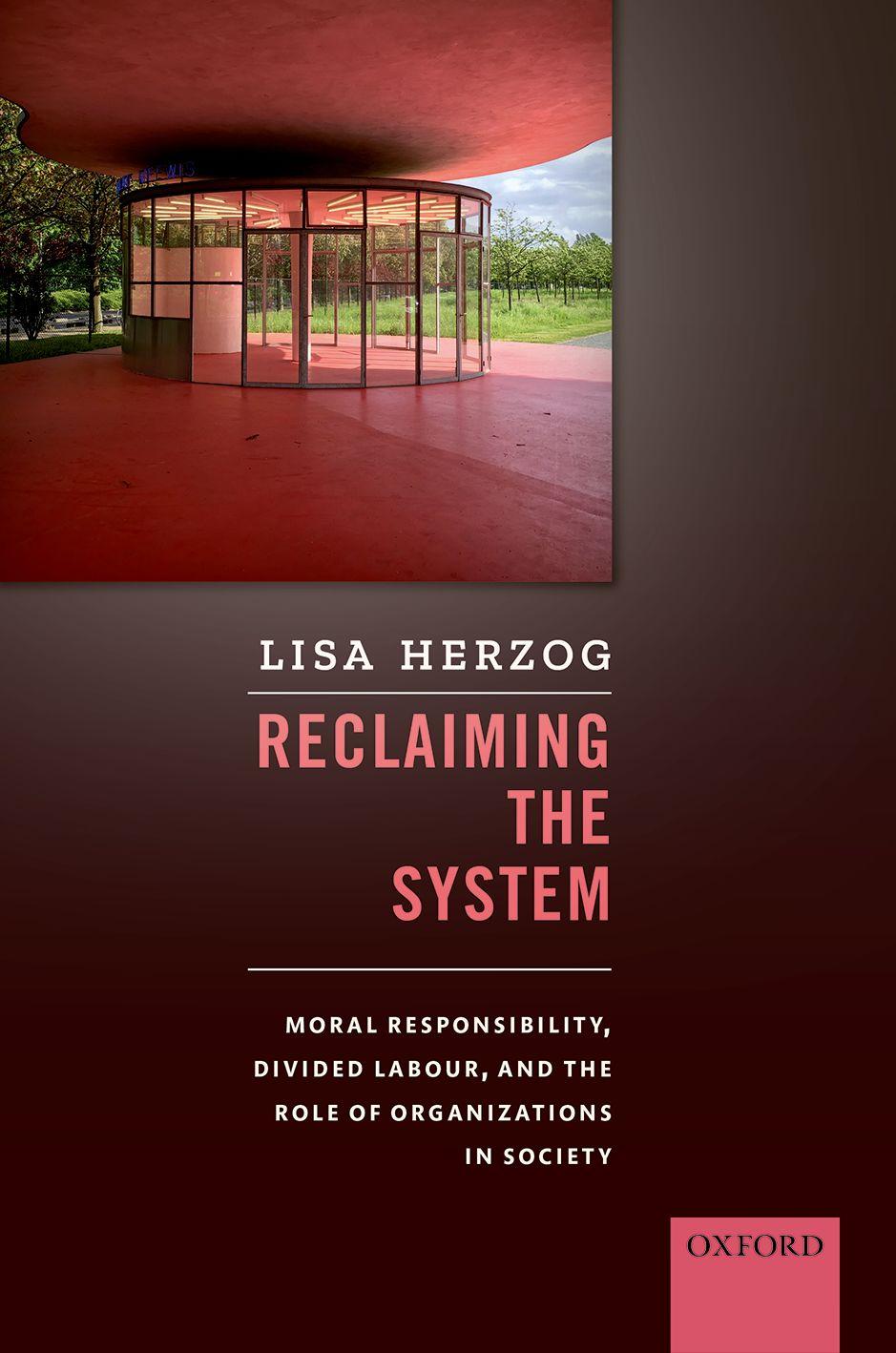https://ebookmass.com/product/reclaiming-the-system-moralresponsibility-divided-labour-and-the-role-of-organizations-
Instant digital products (PDF, ePub, MOBI) ready for you
Download now and discover formats that fit your needs...
Citizen Knowledge: Markets, Experts, and the Infrastructure of Democracy Lisa Herzog
https://ebookmass.com/product/citizen-knowledge-markets-experts-andthe-infrastructure-of-democracy-lisa-herzog/
ebookmass.com
Financial Inclusion and the Role of Banking System Sudarshan Maity
https://ebookmass.com/product/financial-inclusion-and-the-role-ofbanking-system-sudarshan-maity/
ebookmass.com
Ignorance and Moral Responsibility Michael J. Zimmerman
https://ebookmass.com/product/ignorance-and-moral-responsibilitymichael-j-zimmerman/
ebookmass.com
Impossible Worlds Franz Berto & Mark Jago
https://ebookmass.com/product/impossible-worlds-franz-berto-mark-jago/
ebookmass.com
Damien: A Forced Proximity Insta Love Romance (Heart River Valley: Rugged Mountain Men Book 2) Cindy Smoke
https://ebookmass.com/product/damien-a-forced-proximity-insta-loveromance-heart-river-valley-rugged-mountain-men-book-2-cindy-smoke/
ebookmass.com
The Legal and Regulatory Environment of Business 19th Edition Pagnattaro
https://ebookmass.com/product/the-legal-and-regulatory-environment-ofbusiness-19th-edition-pagnattaro/
ebookmass.com
eTextbook 978-1285424637 Veterinary Clinical Procedures in Large Animal Practices
https://ebookmass.com/product/etextbook-978-1285424637-veterinaryclinical-procedures-in-large-animal-practices/
ebookmass.com
Once in a Blue Moon Sharon Sala
https://ebookmass.com/product/once-in-a-blue-moon-sharon-sala/
ebookmass.com
Taliban Narratives: The Use and Power of Stories in the Afghanistan Conflict Thomas Johnson
https://ebookmass.com/product/taliban-narratives-the-use-and-power-ofstories-in-the-afghanistan-conflict-thomas-johnson/
ebookmass.com
Export https://ebookmass.com/product/export-import-management-gupta/
ebookmass.com
RECLAIMINGTHESYSTEM ThispublicationispartoftheDFG-fundedClusterofExcellence “TheFormationof NormativeOrders” atGoetheUniversityFrankfurtamMain
Reclaimingthe System MoralResponsibility,DividedLabour,andtheRole ofOrganizationsinSociety
LISAHERZOG GreatClarendonStreet,Oxford,OX26DP, UnitedKingdom
OxfordUniversityPressisadepartmentoftheUniversityofOxford. ItfurtherstheUniversity’sobjectiveofexcellenceinresearch,scholarship, andeducationbypublishingworldwide.Oxfordisaregisteredtrademarkof OxfordUniversityPressintheUKandincertainothercountries
©LisaHerzog2018
Themoralrightsoftheauthorhavebeenasserted
FirstEditionpublishedin2018
Impression:1
Allrightsreserved.Nopartofthispublicationmaybereproduced,storedin aretrievalsystem,ortransmitted,inanyformorbyanymeans,withoutthe priorpermissioninwritingofOxfordUniversityPress,orasexpresslypermitted bylaw,bylicenceorundertermsagreedwiththeappropriatereprographics rightsorganization.Enquiriesconcerningreproductionoutsidethescopeofthe aboveshouldbesenttotheRightsDepartment,OxfordUniversityPress,atthe addressabove
Youmustnotcirculatethisworkinanyotherform andyoumustimposethissameconditiononanyacquirer
PublishedintheUnitedStatesofAmericabyOxfordUniversityPress 198MadisonAvenue,NewYork,NY10016,UnitedStatesofAmerica
BritishLibraryCataloguinginPublicationData Dataavailable
LibraryofCongressControlNumber:2018938177
ISBN978–0–19–883040–5
Printedandboundby CPIGroup(UK)Ltd,Croydon,CR04YY
LinkstothirdpartywebsitesareprovidedbyOxfordingoodfaithand forinformationonly.Oxforddisclaimsanyresponsibilityforthematerials containedinanythirdpartywebsitereferencedinthiswork.
ForGeorg Acknowledgements Ifittakesavillagetoraiseachild,italsotookanacademicvillagetowritethis book.Iowethankstomanyindividualsandinstitutionswhohavesupported meonalongjourney,whichincludedmomentsofdespairaswellasgreat excitement,andwhichtookquiteafewunexpectedturns.Whileworkingon thisproject,Iwasemployedbyseveraluniversities,andvisitedsomemore.
Istartedthisprojectatatimewhenthepoliticallandscape,whilenot untroubled,lookedfarfriendliertoreformistideasthanitmayseemtoday. AtthetimewhenIgotinterestedinethicsinorganizations,itwastheGreat FinancialCrisisthatprovidedampleillustration.Manycommentatorsseemed tofocusonwhathadgonewrongwith markets,withoutconsideringthat manypatternsofbehaviourthatcontributedtothecrisishadlittletodowith markets,andalltodowithorganizationalstructures thiscaughtmyattention.Iremainconvincedthatthetopichaslostnoneofitsrelevance.The overwhelmingpoweroforganizations,especiallytransnationalcorporations, istherootcauseofaplethoraofcurrentproblems.Hence,whileworkingon theproject,IrealizedthatIshouldnotconfinethediscussiontowhathappens withinorganizations.PartIIIistheresultofthesereflections.
Ireceivedfeedbackonthevery firstplanstowriteabookaboutethicsin organizationsfromLudwigSiep,ChrisNeuhäuser,AlexanderMorell,Thomas Beschorner,andDieterThomäandthephilosophyteam,especiallyFlorian Grosser,MichaelFestl,ChristophHenningandChristopherParet,atthe UniversityofSt.GalleninSwitzerland.Whileworkingthere,the ‘ peermentoring’ groupwithotherfemalepostdocshelpedmetoweathersomeofthe stormsofbeingayoungpostdoc.Ialsohadhelpfulconversations,duringthat earlyphase,withJohannesRüegg-Stürm,MoniqueLampe,HubertusEichler, UrsBüttner,MarkSchelker,andMarkPhilp.AndrewWalton,whoalso workedinSt.Gallenatthetime,wasnotonlyacolleague,buthasbecomea wonderfulfriend.Heisthemastermindbehindthegroupblogwww.justiceeverywhere.org,whereIalsopresentedsomeideasthatrelatetothemesofthis book(e.g.Herzog2015a,2015b).
DuringanacademicvisitatLeuvenUniversity,IhadmanyhelpfulconversationswithKarindeBoer,WimWeymans,andAnyaTopolsky.Anya insistedontherelevanceofArendt’sthoughtformyquestions,forwhich Iamverygrateful.Ialsohadtheopportunitytopresentanearlyversionof Chapter8,andreceivedveryvaluablefeedback.
Onthemethodologicalfront,Ihadhelpfulconversations,earlyon,with PhilineErfurtandFlorianSchulz.EricSchliesserallowedmetodoaguestpost
onhisblog Digressions&Impressions (Herzog2014b),whichwasa wonderfulencouragementthatboostedmyconfidenceinmymethodological choices.Atthe2014AssociationforPoliticalTheoryConference,Michael Frazer,andthenalsoacoupleofotherpeople,toldmethatIreally,really neededtomeetBernardoZacka, ‘the one otherpersononthisplanetcombiningphilosophyandethnography’.Westartedtalking,andrealizedthatwe wereindeedcomradesinthebattleofrendering ‘politicaltheoryabitmore relevanttolife’,asBernardoputitwhensendingmehis2017book.Weended upwritingapapertogether,inwhichweexplainanddefendthemethodologicalstrategiesthatweuseinourwork(HerzogandZacka2017).WhileIam puttingthe finaltouchestomymanuscript,Iaminvolvedinthepreparations fora ‘Doktorandenkolleg’—afour-yearprojectforseveraldoctoralstudents thatwillcombinephilosophicalresearchwithqualitativestudiesinvarious organizations,forexamplecompaniesandhospitals,inordertograspthe moralchallenges ‘inthe field’.IamverygratefultoMonikaBetzlerfor initiatingthisprojectandforinvitingmetobepartofit.Ilookforwardto workingwithherandothersonakindof ‘practicalphilosophy’ thatisinclose dialoguewithpractitionersaboutthemoralchallengesofoursocieties,and thatcan,hopefully,contributetoaddressingthembetter.
ItwasduringmytimeinSt.GallenthatIconductedmostofmyinterviews. Ofcourse,Icannotnamethepersonswhovolunteeredtobeinterviewed,and sometimesalsohelpedmeto findothercontacts,orpointedmetorelevant literature.Ihavetoleavethemanonymous,whileexpressingmydeepgratitudetothem.Withoutthem,Icouldnothavewrittenthisbook!
In2013,ImovedtotheUniversityofFrankfurt theofferofworkingwith AxelHonneth,inaprojectco-financedbytheresearchcluster ‘Normative Order’ andthefamoustraditionalhomeoftheFrankfurtSchool,theInstitut fürSozialforschung(IfS), and inacitywheremypartnerhadjustfoundajob, wasirresistible.Theenvironmentwasindeedwonderfullyinspiring,notleast becauseoftheinterestingdifferencesinfocusbetweentheclusterandthe IfS.Icontinuedtoworkonmyownprojectwhilealsodelvingintothetopics oftheprojectIwashiredtoworkon,namelymoralagencyin financial markets.Again,Iwillkeeptheveilofanonymityinplace,butseveralindividualsfromthe financialinstitutionthatwasthe ‘Praxispartner’ fortheproject wereextremelygenerouswiththeirtime.Onebecameawonderfulmentorand friend.AmongthemanypeoplewithwhomIhadhelpfulconversationsat theIfSwerePeterWagner,SidoniaBlättler,YvesSintomer,andChristiane Schnell.AttheCluster,andattheresearchgroupJustitiaAmplificata,Ihad greatdiscussionswithBethKahn,JahelQueralt,EszterKollar,andMerten Reglitz.AxelHonneth,WernerPlumpe,DarellMoellendorf,andRainerForst agreedtobetheinternalexaminersofthe ‘habilitation’,andIbenefitedalot fromtheirthoughtfulcommentswhenrevisingthemanuscriptforpublication.
Myexternalhabilitationexaminer,DebraSatz,wasalsomyhostduringa postdoc,in2014/15,attheCenterforEthicsinSociety.ThecordialatmosphereandtheacademicenvironmentinStanfordwerefantastic,andhelped medealwiththefactthatIwasninetime-zonesawayfrommypartnerandmy family.Ihadlotsofopportunitiestopresentmywork,andgotextremely usefulfeedbackfromDebraSatz,AnneNewman,PatrickTaylorSmith, MeganBlomfield,BrentSockness,AlexLevitov,AlanRyan,BrianBerkey, EmmaSaunders-Hastings,SarahMrsny,andEammonCallan.Thestaffatthe Center,especiallyJoanieBerryandAnneNewman,didtheirparttomakethis yearsogreatforme.AndIameternallygratefultothemusicdepartmentfor lendingmeacello,andthefacultyandmyfellow-playersforlettingmetake partinchambermusicprojectsandintheuniversities’ orchestras.Playing BrahmsandMahlerhelped fightmyhomesicknessforEurope!
Ipresentedpartsofthisprojectatmanyplaces:attheInstitutfürSozialforschung,theUniversityofGeneva,variousManceptWorkshops,theUniversityofAmsterdam,theUniversityofDurham,severalEconomicEthics Networkmeetings,thepostdoctoralworkshopsatStanford,theCSPTconferenceatYale,theFernuniversitätHagen,theUniversityofKiel,theUniversity ofRostock,andtheWittenbergCenterforGlobalEthics.Ialsodiscussed severalchapterswithChristianNeuhäuser,DavidSchweikard,AnnaGoppel, RobinCelikates,SimonDerpmann,FelixKoch,andFranziskaDübgenatour informal,butatthetimequiteregular,politicalphilosophymeetingsinBerlin. Iwouldliketothankallorganizersofconferences,workshops,andcolloquia, whetherformalorinformal,andallthosewhoparticipatedinthediscussions andprovidedmewithfeedback.Some,likePhilippPettitorRobinZheng,also sentmewrittencommentsonchapters,forwhichIamextremelygrateful. Icouldnotdophilosophywithoutconversation,discussion,andexchange, andI’velearnedsomuchfromallofyou!
In2016,Igotmy first ‘real’ job,astenuretrackprofessorattheHochschule fürPolitikattheTechnicalUniversityofMunich.Iwouldliketothankthose ofmycolleagues,bothontheacademicandontheadministrativeside,with whomIcouldcooperateproductivelyonthemanylargeorsmallstepsof buildingupthedepartmentanditsnewprogrammes(theothercolleagues ohwell,that’spartoforganizationallifeaswell ...). MarkReiffwasavisiting professorinMunichinDecember2016,awonderfulopportunitytolearn fromhimandtohavelotsofgreatdiscussions.IalsowanttothankMatthias Egelerforbeingawonderfulfriendandakindofdigitalofficeneighbour,who encouragedmetohangonwhenIneededit.InMarch2017,Irefuelled academicoxygenbyvisitingthephilosophydepartmentofUtrechtUniversity. IamdeeplygratefultoRutgerClaassenfororganizingthevisit,toIngrid Robeynsforsharingherofficewithme,andtoallmembersofthedepartment forwonderfulandinspiringconversationsaboutphilosophyandlife!
x Acknowledgements
Ihavepublishedanumberofpiecesthatcontainideasandargumentsthat arealsopresentinthebook.Iwouldliketothankreviewersandeditorsfor valuablecomments,and,whereapplicable,publishersforpermissionsto reprint:
• Herzog,Lisa.2016b. ‘“Kantianer” inHegelsWirtschaft transformationales HandelninOrganisationen’ (inSvenEllmersandSteffenHermann(eds.), KorporationundSittlichkeit.ZurAktualitätvonHegelsTheoriederbürgerlichen Gesellschaft,Paderborn:Fink,331–46)containssomeideasandarguments abouttransformationalagencythatalsoappearinChapter7.Iwouldlike tothankFinkVerlagforthepermissiontoreusethismaterial.
• Herzog,Lisa.2016c. ‘GibteseineMachtderReflexioninderWeltder Wirtschaft?’ (inHeinerHastedt(ed.), MachtundReflexion. Deutsches JahrbuchPhilosophie6,Hamburg:Meiner-Verlag,165–82)coverssimilar ground,althoughframedsomewhatdifferently.Iwouldliketothank MeinerVerlagforthepermissiontoreusethematerial.
• Herzog,Lisa.2016d. ‘BasicIncomeandtheIdealofEpistemicEquality’ (BasicIncomeStudies 11(1),29–38)containssomereflectionsabout epistemicrespectthataresimilartothoseinChapter6.Iwouldliketo thank BasicIncomeStudies andDeGruyterforallowingmetoreusethe material.
• Herzog,Lisa.2016e. ‘WagtmehrDemokratie’ (FrankfurterAllgemeine Sonntagszeitung,4December,andonline3January2017)containsan evenshorterversionoftheargumentforworkplacedemocracy,basedon reflectionsonthenatureoforganizationsandthefallingcostsofdigital communication.
• Herzog,Lisa.2017b. ‘NurRädchenimSystem?WarumVerantwortung sichnichtoutsourcenlässt’ (inGlobArt(ed.), Wirklichkeit(en).Gegenwartneuwahrnehmen Zukunftkreativgestalten. BerlinandBoston, MA:DeGruyter,56–62)containsashortsummary,inGerman,ofthe reasonsforwhyemployeesneedtoseetheirjobsinmoraltermsand cannot ‘outsource’ responsibility.IwouldliketothankGlobArtandDe Gruyterforthepermissiontoreusethismaterial.
• Herzog,Lisa.Forthcoming(a). ‘IntegrityandTransformationalAgency inOrganizations’ (inRachaelWiseman,AmberCarpenter,andCharlotte Alston(eds.), PortraitsofIntegrity)alsodiscusses,althoughinfarless detail,thecasestudyof ‘Albert’ thatIdrawoninChapter8.Iwouldlike tothankBloomsburyforthepermissiontoreusethematerial.
• Herzog,Lisa.Forthcoming(b). ‘WelcheMärkte,wessenWirtschaft?Das RechtfertigungsnarrativdesMarktesunddievernachlässigteRolle wirtschaftlicherOrganisationen’ (inKarstenFischerandSebastian Huhnholz(eds.), DiePolitischeTheoriedesLiberalismus.Baden-Baden:
Nomos-Verlag)containssomegeneralargumentsabouttheroleof organizationsinliberalsocieties.IwouldliketothanktheNomos-Verlag forthepermissiontoreusethemesfromthatchapter.
Isentthebookproposalandthe firstversionofthefullmanuscriptto DominicByattinNovember2016and,asalways,hehasbeenfantasticin handlingthereviewingprocess.Iwanttothankhiminparticularforpicking Reviewer2.ContrarytothereputationofReviewer2,heorshedidawonderful job.Thereviewwasextremelydetailed,andasconstructiveandencouragingas itcouldpossiblybe.Ithelpedmetodealwithvariousweaknessesofthe manuscript,andpointedmetowaystoremedythem.Ifallreviewersactedas Reviewer2,academiclifewouldbesomuchbetter!Iwouldalsoliketothank OUP’swholeteam,especiallyAlameluVengatesan,fortheswifthandlingofthe publicationprocess,ChrisBessantforawonderfuljobascopy-editor,andBob Marriotforpreparingtheindex.
WhileIhavereadaroundwidelyinpreparationforthisbook,Ifeelaneed toapologizetoalltheauthorsImighthaveoverlooked.Whenworkingin betweenestablished fields,itisincrediblydifficultto findallrelevantliterature, anddespitemanyefforts,andalotofhelpfromothers,Iamprettycertain thattheremustbeindividualgems,ormaybewholestrands,ofliteraturethat Ihaveoverlooked.Forexample,itwasonlythankstoReviewer2that IdiscoveredDorothyEmmet’s1966book Rules,RolesandRelations.Ioften wonderhowourdisciplinecouldbecomebetteratappreciatingtheinsightsof pastthinkers,andIamveryhappyaboutthemovementstomakethe ‘ canon ’ morediverseandto ‘digup’ forgottentexts,especiallytextsbyauthorswho mighthavebeenunjustlyneglectedbecauseoftheirraceorgender.
Iworkedonthe finalrevisionsofthemanuscriptduringmyfellowshipat theWissenschaftskollegzuBerlin.Thisplaceiskindofmagic;theleadership andthestaff,aswellasmycohortoffellows,arefantastic.Intheinterdisciplinaryencountersthattakeplacehere,IlearnmorethanIcouldpossiblyhave hopedfor,andIampushedtorethinksomeoftheveryfoundationsofwhatit meanstobeaphilosopher.
Andthen,there’sGeorg,nowmyhusband.Heismyfavouritepartnerin conversationaboutprettymucheverything,includingethicsinorganizations. HehasmadesureIwouldnotlosesightofthewoodwhenlookingatthetrees, andhecontinuedtobelieveinthisprojectevenwhenIalmostlostfaith. Idedicatethisbooktohim,asasmallexpressionofthanksforthingsthatare biggerthanwhatIcouldexpressinwords.
1.Introduction:SubjectsandSystems1
PARTI.MORALRESPONSIBILITYIN CHALLENGINGCONTEXTS 2.MoralResponsibility,SociallyEmbedded23
4.Organizations:HierarchiesofDividedLabour60
PARTII.THEMORALCHALLENGES 6.TheUseofKnowledgeinOrganizations107
6.1.Introduction
6.2.KnowledgeinOrganizations
6.3.KnowledgeGapsandtheirMoralRelevance
6.4.KnowledgeandRespect
6.5.EpistemicCulturesinOrganizations
6.6.Conclusion
7.TheResponsibilityforanOrganizationalCulture140
7.1.Introduction
7.2.TheInescapabilityofCulture
7.3.OrganizationalCultureandMoralNorms
7.4.CulturalSlopes
7.5.
7.6.SignalsandReasons
8.SelfandRole:TransformationalAgencyinOrganizations170
8.1.Introduction
8.2.
8.3.MoralReflectionandOrganizationalRoles
8.4.TransformationalAgency:MoralStewardshipinOrganizations
8.5.OfferingSpaceforMoralReflection:TheResponsibility
PARTIII.THEROLEOFORGANIZATIONS INSOCIETY 9.OrganizationsinSociety:A ‘Non-ideal’ Approach215
9.1.Introduction
9.2. ‘Bottom-Up’ RequirementsonSocialStructures
9.3.ProtectingIndividualRights
9.4.ChannellingPressuresonOrganizations
10.OrganizationsinSociety:HowGoodCanItGet?239
‘theSystem’
10.5.Democratizing ‘theSystem’
10.6.Reclaiming ‘theSystem’
Introduction:SubjectsandSystems 1.1.INDIVIDUALSINORGANIZATIONS:NORMATIVE THEORY ’ SBLINDSPOT Modernsocietiesareorganizedsocieties.Largeorganizations,bothpublicand private,shapetheworldofpaidwork,andasonecommentatorwrote, ‘increasinglyimpingeonthewaysweliveourlives’.¹Workinginsuch organizations,humanbeingsseemtolosetheircharacterasmorallyresponsible beings:theyseemtobeturnedinto ‘ cogs ’²inthewheelsofthesemachines.And whilechurningoutvariousformsof ‘output’,manyofthesemachinesdoalotof harm:exploitation,discrimination,environmentaldamage,andrelentlessly increasingCO₂ emissionsareamongtheillscausedbyorganizationsandby theindividualswhoworkinthem,oftenfailingtotakeresponsibilityforthe moralqualityoftheiractions.
Thisstudyexploresthespecificmoralchallengesoforganizations,focusing onmoralchallengesofwhichorganizationsarenotonlythe site,butthe source.³Themorallifeoforganizationsisreducibleneithertoindividual morality,nortoinstitutionalstructures.Rather,itisusuallythe interplay of individualmoralagencyontheonehand,andorganizationalstructureson theother,thatdeterminesoutcomes.⁴ Howthesetwosidesmeshisthereforeof greatestimportanceforthemoralcharacteroforganizations.
Theprototypeoforganizationsistheclassicbureaucracy,whichMax Weberfamouslydescribedatthebeginningofthetwentiethcentury.⁵ Its
¹Emmet1966,183.
²Foradiscussionofthisterm,seee.g.Arendt2003,29f.SeealsoMay1996,chap.4.
³IamgratefultoPeterSpieglerforsuggestingthisterminology.
⁴ WhenItalkabout ‘organizations’ asagents,thisisusuallyashorthandforindividualsor groupsofindividualsquaholdersofspecificpositionswithinorganizations,e.g.asboard members(seealson.56insect.2.3andn.4insect.4.1onvariousdebatesabouttheontology oforganizationsandinstitutions).Myapproachiscompatiblebothwithmethodologicalindividualism(atleastifitisunderstoodinacertainway,namelyastakingintoaccountthesocial relationswithinwhichindividualsstand)andwithpositionsthatdefendthenon-reducible existenceofgroupsororganizations.
⁵ SeeWeber1968,vol.I,223ff.andvol.III,956ff.
centralfeaturesaredividedlabourwithdividedresponsibilities,asystemof rules,andhierarchicalrelationswithlinesofcommandthatcoordinatethis dividedlabour.Today,therhetoricaroundorganizationsisdifferent,andtheir formsaremorevaried.Butinsubstance,theWeberianmodelisstillvery muchwithus,bothinthepublicsectorandintheprivateeconomy,whereit typicallytakestheformoflargecorporations.Individualsinteractwithorganizationsasclients,customers,andcitizens,butthemostimportantwayin whichtheydosoisasemployees.Inmanysocieties,mostsalariedwork continuestotakeplaceinsuchorganizations.Inthem,individualsfacespecific moralchallenges,whicharedifferentfromthemoralchallengestheyencounterinotherspheresoflife.
TakethecaseofHenry,amiddle-agedengineerwhoworkedinalarge companythatdevelopedtechnicaldevices,andwhomIinterviewedaboutthe moralchallengesofhisjob.⁶ Manyofthemoralquestionshemulledover concernedthedistributionof,andresponsibilityfor,knowledge.Theprojects heledwerehighlyspecialized,andHenryregularlyencounteredsituationsin whichspecializedknowledgewashandledinmorallyproblematicways.For example,powerstructuresandtimepressureswouldgetinthewayofa careful,responsibleanalysisoftechnicaldetailsandtheriskstheymight create.Henry,whodrewonallhisexpertisetomakesuretheprojectswould beruninaresponsibleway,wassometimesbrushedoffbecausehewouldnot bringthenewsthatothers,higherupinthehierarchy,wantedtohear.Inone instance,hisbosshadaskedhimtolookintothefeasibilityofanewproductionprocess.Henrywenttogreatlengthsinordertodelivertheresultson time,buttheywerenotwhathisbosswantedtohear hesimplydidnot believehim.Henryfeltdeeplytroubled:hewasnottakenseriouslyasabearer ofknowledge,andultimatelyasarationalagent,andthecarelessuseof knowledgecouldeasilyleadtodangerousmistakes.Couldorganizationsbe runinwayssuchthatsuchfailuresofrespectforbearersofknowledgeare avoided,andknowledgeishandledinmorallyresponsibleways?
Sometimesevengreatermoralgoods,suchasthelifeandhealthofindividuals,canbeatstakeiforganizationsarerunbadly.Monica,ayoungdoctor, toldmeaboutherexperiencesofthe firstdayonanewjob.Lifeattheward washectic,andwhenshearrived,stillinherstreetclothes,shewasimmediatelycalledtolookafterapatient.Shewasthrownintohernewjobwithout anykindofintroductiontotheteamortheorganizationalstructures.Shehad nochancetofamiliarizeherselfwiththeproceduresandtheresponsibilitiesofthedifferentunits.Twodayslater,shehadtoworkthenightshift,as wellashelpcovertheemergencyroom.When,inthesmallhoursofthe morning,hershiftwas finallyover,apatientinacutedistress,withunclear
⁶ Seesect.1.2andtheAppendixonthemethodologicalstrategyofthisstudy.
symptoms,arrived andnooneelsewasaroundtotakecareofher.Monica hadnoclueabouthowtogethertotheinternalmedicineunitforadiagnosis. Sheendedupcallingthenightporter,andtogethertheyrushedthegurney throughthelongcorridorsofthehospital.Howcanorganizationsberunin waysthatavoidoverburdeningindividuals,andthatavoidmakingthefulfilmentofbasicmoralnorms,suchaspropercareforpatients,dependentonthe willingnessofindividualssuchasMonicatodomorethantheirfairshare?
If thingsgowronginorganizations,theycangowrongonamassivescale. Technicaldisasters,orconundrumsliketheGreatFinancialCrisisof2008,can harmlargenumbersofinnocentindividuals.Often,suchharmsarisewithout maliciousintentionsonthepartofthoseinvolved,causedbyfactorssuchas negligence,blindacceptanceofauthority,orbadlysetincentives.⁷ Organizationsareinternallycomplex,andtheirmembersoftenhavetomakedecisions withoutbeingabletoanticipatealltheirconsequences.Intheinterconnected processesoforganizationallife,especiallywhencomplextechnicalsystemsare involved,onewrongstep,oraconjunctureofseveralseeminglytrivialmistakes,canleadto ‘systemaccidents’ . ⁸ Inaglobalizedworld,thevictimsofsuch ‘systemaccidents’ canbenotonlylocalresidents,butalsodistantindividuals, whohavedonenothingtodeservebeingharmed,butwhoareoftenthe weakestlinksinthechainsoftheglobaleconomy.
Themoralchallengesoforganizationallifeareofteninvisibletothepublic: theytakeplacebehindorganizations’ anonymousfacades.Sometimes,employeesarenotevenallowedtodiscussthemwiththeirfamiliesorfriends. Theyonlybecomeamatterofpublicdiscoursewhenadisasterhashappened andthelegalmachinerykicksin orwhenawhistle-blowercomesforward,or informationisleakedtothemedia,aboutongoingorpotentialwrongdoings. Inrecentyears,therehavebeenanumberofprominentcasesofwhistleblowingandleaking.⁹ Theyhavecaused fiercecontroversy:someseetheseindividualsasdangerousmavericks,whileothersconsiderthemtobethemoral heroesofourtime.Butwhatifthecasesuncoveredbywhistle-blowersand leakersarejustthetipofanicebergofmoralquestionsaboutorganizational life?Whilewehaveheardalot,especiallyaftertheGreatFinancialCrisis, about market failure,andgovernmentsarealsoregularlyaccused,rightlyor wrongly,of government failure, organizational failure,andespecially moral organizationalfailure,israrelymadeanissue.Thisstudyattemptstoclosethis gap,andtostartaconversationabouttheseissues.
⁷ Cf.alsoGoodpaster2007,16f.;BazermanandTenbrunsel2011,19.
⁸ On ‘complexity’ and ‘tightcoupling’ (i.e.closelyinterconnectedprocessesinwhichone elementcannotbeswitchedoffbeforeitaffectsothers),seealsoPerrow1984.
⁹ Twocasesinparticularhavereceivedworld-wideattention:ChelseaManning,whoin2010 leakedevidenceaboutallegedkillingsofciviliansbytheUSarmy,andEdwardSnowden,whoin 2013exposedthesurveillancepracticesoftheNationalSecurityAgency.
Largeorganizations,especiallylargecorporations,areamongthemost powerfulentitiesoftoday’sglobalizedworld.¹⁰ Theregulatorypowerofnation states,whichcanputexternalbrakesonthebehaviouroforganizations,has longbeenindecline.Individualsoftenfeelpowerlessinthefaceoflarge-scale organizations,despiteawidelysharedsensethatmoralchangeisneededand thatorganizationshavetochange,too.Thewayinwhichwehavesetup organizations,especiallycorporations,seemstoresemblethespiritsinGoethe’ s poem ‘TheSorcerer’sApprentice’:wehavecitedthem,andnowwecannotcall themback.¹¹Analysingthemoralchallengesoforganizationallifeisa firststep towardsunderstandingthestrategiesthatareopentousforreconquering thesespirits.¹²Weneedtoaskfundamentalquestionsaboutdividedlabour, hierarchies,theresponsibilityforknowledge,one’srelationtoone’sorganizationalrole,andmanyotherissues,ifwewantto ‘reclaimthesystem’,andbring itinlinewithourconsideredmoralconvictions.
Onemightthinkthatthegoldenageoforganizationsislongpast,andthat theymighthavebeenaworthiertopicofstudyinthe1960sand1970s,when JohnK.Galbraithwroteaboutthe ‘NewIndustrialState’,contrastingthe mechanismsoflargecorporationswiththefreeplayofsupplyanddemand inmarkets.¹³Sincethen,themonolithicstructuresoflargecorporationshave givenwaytomore flexible,andmaybealsomoreshort-lived,structures,and marketshavebecomemuchmorepowerfulanddynamic.Butthisdoesnot
¹⁰ Readersmight,infact,wonderwhythisstudyisnotwrittenintermsoforganizational poweranditscritique.Ihaveresistedthismovefortworeasons.The firstisthatthenotionof powerisitselfnotoriouslydifficulttodefine.Thesecondisthatifoneusesareasonablybroad notionofpower e.g.Forst’srecentaccountof ‘noumenal’ power,accordingtowhich ‘tohave andtoexercisepowermeanstobeable indifferentdegrees toinfluence,use,determine, occupy,orevensealoffthespaceofreasonsforothers’ (2015,116) thenpowerissoubiquitous inorganizationsthatonehastolookattheunderlyingfactors,andthequestionofwhetherand howtheymightjustifytheuseofpower.This,inasense,iswhatIdo.Inotherwords,therelevant questionisnot: ‘Whereispowerinorganizations?’ butrather: ‘Whichformsofpowerin organizationscanbejustifiedandwhy?’ Itisworthremembering,however,thatafullydeveloped answertothisquestionoftenneedstotakeintoaccountpowerrelationsoutsideoforganizations aswell,becausenoorganizationoperatesinapowervacuum.InPartIII,Ioffersomereflections aboutthesewiderinstitutionalcontexts.
¹¹Or,asColemandescribedthecharacterofcorporationsinthe1970s: ‘Itisliketherecurrent sciencefictionnightmare therobotcreatedbymancomingtohaveawillofitsown,andout fromunderthecontrolofman.Thefactthattheserobotsaremerelyintangibleorganizational structuresmakesthemnolessrealintheireffects’ (1974,57).
¹²Inthissense,mystudycanbecharacterizedas ‘non-ideal’:itstartsfromwhatIperceiveas concretemoralproblemsinoursocieties(cf.e.g.Anderson2010,6,forsuchanunderstandingof non-idealtheory;seeValentini2012foranoverviewofthedebate).Itisalsoclosertoreallife thanmany ‘idealtheories’ inthatittakesonboardmanyfactsabouttheworldasweknowit:not onlythefactthatthereareorganizations,butalsomanyfactsabouthumannature.Nonetheless, myapproachisaspirational,andmaybeevensomewhat ‘utopian’ inthesensethataworldin whichallorganizationsarekeptmorally ‘ontrack’ isprobablynevergoingtoexist,andalsoin thesensethatthechangesthatIpropose(esp.inPartIII)arehardtorealize.
¹³Galbraith1967.
changethefactthatorganizationscontinuetoplayanextremelyinfluential roleinoursocieties.AsJamesK.Galbraith,thesonofJohnK.,wrotein2007, commemoratingthefortiethanniversaryofhisfather’sbook:
Onecannotgrasptheworldofcorporateraiders,oftheinformationtechnology bubble,ofcontrolfraud,ofthebizarresymbiosisthatpresentlyexistsbetween post-capitalistAmericaandpost-communistChina,norespeciallyofthebig government,bigcorporation,Beltway-boomRepublicanismofGeorgeBush, throughanopticoffreeandcompetitivemarkets.Theideasof TheNewIndustrialState aneconomicsoforganization,information,controlandpower are ontheotherhandexactlywhatweneed.¹⁴
Elevenyearslater,ourmainfearsaboutorganizationsmayfocusmostlyonthe giantsoftheinternetage,suchasGoogle,Facebook,orAmazon.Thesecertainly havesomefeaturesoftheirown,andraisemanycomplexnormativequestions. Buttheyarealsopreciselythat:giantorganizations.Inrecentdecades,thehabitof thinkingaboutoureconomicsystemsas ‘marketeconomies’ hasovershadowed manyofthequestionsthatarisefromthestructuresoforganizations.¹⁵ Itremains tobeseenwhetherthechangesthatcomeunderthelabelof ‘platformcapitalism’ orthe ‘gigeconomy’ willreallymakeorganizationalstructuresredundant.They mightwellbeoldwineinnewbottles oftenatworseconditionsforindividuals, butretainingallthemorallytroublingfeaturesoforganizations.Forreasonsthat Iwilldiscusslaterinthisbook,especiallyinChapter4,Iamscepticalwhether organizationalstructureswilldisappearanytimesoon.Itislikelythattheywill continuetobeanessentialelementofboththeprivateeconomyandthepublic realm andhencetheirmoralqualityremainsamatterofconcern.
Thelackofpublicdiscourseonthemoraldimensionsoforganizationsis matchedbyneglectinthescholarlyrealm.Itprobablyhastodowiththefact thatorganizationslieatthemeso-levelofsociallife,betweenthemicroquestionsofindividualmoralityandthemacro-questionsofjustsocialstructures.Emmet,whoisoneofthefewexceptionstothisgeneralneglect,notedin 1966that ‘whilemanyofourmostpressingmoralproblemsariseoutofthefact thatwehavetoliveincreasinglyinbigorganizations,mostmoralphilosophyis stillwritteninaveinwhichassumesthatmoralityisamatterofface-to-face personalrelations’.¹⁶ Thisstillseemstobetruetoday:whilemanydiscussionsin
¹⁴ Galbraith2007.
¹
⁵ AsCiepleyrecentlyputit: ‘Wedonotliveinamarketsociety,relatingtooneanotheras independentproducersandsellersboundtogetherbyawebofbilateralcontracts.Rather,welive inacorporate,organizationalsociety,relatingtooneanotherwithinandacrossorganizationsas jobholders,eachwithastationandduties’ (2013,140).Overlookingthisfact,andaddressingthe economicsphereinpurelyindividualistterms,resultsina ‘grossmismatch,’ hewarns(ibid.).See alsoHerzog(forthcoming(b)).
¹
⁶ Emmet1966,ix.Heraccountoffersbroaderreflectionsonthenatureofmoralityandthe relationshipbetweenrules,socialrules,andmoraljudgement.Shealsodiscussestherelation betweensociologyandmoraltheory,anotherlong-neglectedsubject,andaskshowtheycanbe
moralphilosophyarerelevant,inonewayoranother,toorganizationallife,one hardly findsanysystematicanalysesofitsspecificmoralchallenges.
Thepictureinpoliticalphilosophyissimilar:hardlyanytheoristexplicitly discusseslargeorganizations,suchascorporationsorpublicbureaucracies.As Néronrecentlynoted: ‘Nocontemporarytheoristofjusticeseemstoenvisage ajustsocietythatdoesnotinvolvesuchorganizations,soitwouldseemto followthattheoriesofjusticehavetobeabletosaysomethingaboutthe kindsoforganizationalrelationshipsandgovernancearrangementsthat areandarenotacceptable.’¹⁷ Onereasonforwhythisisnotthecasemight betheseparation,andlackofcommunication,betweenpoliticalphilosophy andbusinessethics.¹⁸ Anothermightbethefocusonprinciplesofjustice, ratherthanonthe institutions thatwouldputtheseprinciplesintopractice, whichdominatedanalyticpoliticalphilosophyintheaftermathofRawls’ ATheoryofJustice.¹⁹
Butorganizationsaretoopowerful,andtooimportantforoursocieties,to beneglectedbynormativetheorizing.Organizations,especiallycorporations, havebeendescribedasirresponsiblemonstersthatareincapableofmoral actionandthatmaketheiremployeesequallyincapable.²⁰ Butorganizations canalsobeforcesforgood iftheyremainwithintherealmofwhatismorally
combinedinafruitful,yetmethodologicallysound,way.Inchap.9,shediscussessome implicationsofherapproachfororganizationallife.
¹⁷ Néron2015,107.Thereareafewnotableexceptions.Buchanan(1996)arguesfordevelopinganethicsofbureaucraciesonthebasisofprincipal-agent-models(allwhileacknowledging thelimitsofthisapproach).Bovens(1998)discussespublicbureaucraciesthroughalensof responsibility.Miller(2010)providesa ‘teleological’ accountoforganizationsaccordingtotheir function;ithassomesimilaritieswith ‘Aristotelian’ approachesinbusinessethics(e.g.Solomon 1992orHartman1996).IntheGerman-speakingcontext,Bühl(1998)providesaveryinteresting,undeservedlyneglectedaccountthatfocusesontheresponsibilitythatindividualsshould takefororganizationsandsocialsystems,especiallyinaglobalizedworld.Hübscher(2011) providesanaccountof ‘governanceethics’ thatconnectsquestionsoforganizationalgovernance todiscourseethics.Recently,Anderson(2017)hasprovidedacritiqueofAnglo-Saxoncorporationsasformsof ‘privategovernment’,whichwillhopefullysparkmoreinterestinthetopic.
¹⁸ Forarecentcalltobringthesetwo fieldsclosertogether,seeHeathetal.2010.
¹⁹ Non-Rawlsianpoliticaltheorydoesnotseemtohavedonemuchworkonorganizations either.OnereasonmightbethatatleastsomestrandsoftheorizingoutsidetheRawlsian traditionfocuson ‘thepolitical’ assomethingdistinct,anddifferentfrom,theordinary.Acase inpointisArendt:althoughshehasprovidedimportantdiscussionsoforganizationalcontexts inherreflectionsonEichmannandtheroleofbureaucraciesintheNaziregime(1963),she understandsthepoliticalrealmastherealminwhichindividualsappear asindividuals,incontrast tothemundanerealmsoflabourandproduction(Arendt1958).Herfocusonrevolutionsandon thecreationofnewpoliticalentities(1965)makestheeverydaylifeoforganizationslookdistinctivelyuninteresting.Organizationallifeiswhatisgoingonwhennothingelseisgoingon,onemight think.Butitseemsproblematic,evenfromherownperspective,toexcludethepossibilitythat ‘political’ actioncouldtakeplaceinorganizations.Seealson.28inChap.10.
²⁰ Seee.g.Bakan’saccountofcorporationsas ‘psychopaths’ thatareirresponsible,manipulative,lackempathy,andareunabletofeelremorse(2004,56ff.),andthatconstantlytryto externalizecosts(ibid.,chap.3).
permitted,andsupportindividualstodosoaswell.In1999,Philippsand Margoliscalledfor ‘organisationalethics’ asanew fieldofresearch,whichled tosomedebateabouthowsucha fieldcouldbedeveloped.²¹Sofar,however, therehavebeenfewresponsestotheircall.²²Thisbookattemptstoopenup the ‘blackbox’ oforganizationsfornormativetheorizing.Insection1.2, IdiscussinmoredetailwhatImeanby ‘socialphilosophy’ asanapproach tothemeso-levelofsociallife.SubsequentsectionsexplainhowIunderstand ‘thesystem’ andwhyitneedstobe ‘reclaimed’ (1.3),andprovideanoutlineof thestructureofthisstudy(1.4).
1.2.THEORIZINGORGANIZATIONS:SOCIAL PHILOSOPHYATTHEMESO-LEVEL Studyingthemoraldimensionsoforganizationallifeleadstotopicsthatlie atthemeso-levelbetweenindividualmoralityandthebasicsocio-political institutionsofsociety.Itaimsatbetterunderstandingtheinterplaybetween individualsandorganizations,askinghowtheviolationofbasicmoralnorms canbepreventedwithoutoverburdeningindividualsororganizations.As such,itbelongstowhatIwillcall ‘socialphilosophy’:anapproachthatlooks atindividuals-in-social-context,withoutdenyingtheexistenceofindividual responsibility or theimportanceofinstitutionalcontexts.Suchanapproach, Itakeit,needstocomplementthetraditional fieldsofmoralphilosophyonthe onehand,andpoliticalphilosophyontheother.
²¹PhilipsandMargolis1999,620.Theyarguethat ‘[i]fethicsistobecomeanintegralpartof businessconduct,itmustbeknitintoorganisationallife’,andpointtothevariouswaysinwhich organizationsaredifferentfromthesubjectmattersofbothmoralphilosophyandpolitical philosophy.ForrepliesseeHartman2001,whoarguesthataccountsoforganizationalethics basedonAristotelianethicscanresistthesecriticisms,andMoriarty2005,whoarguesthat politicalphilosophycanprovidetoolsfororganizationalethics,withafocusonworkplace democracy.
²²TheonlynotableexceptionIfoundisanaccountof ‘OrganisationEthicsinHealthCare’ by Spencer,Mills,Rorty,andWerhane(2000),whichdiscussesthemoralchallengesforhealthcare organizations,focusingmostlyontheneedtomaintainapositive ‘ethicalclimate’.Muchoftheir discussionisspecifictohealthcareorganizations(seealsoGibbons2007foranoverviewof topicsinthisarea).Theyconcludebystatingthat ‘[a]lthoughitmayhaveabrightfuture, organisationethicsisinitsinfancy’ (2000,210).Similarly,Suhonenetal.,providingaliterature reviewonorganizationalethicsinthejournal NursingEthics,concludethat ‘therearenolarge coherentresearchprogramsintoorganisationalethics’,statinga ‘needtodevelopconceptual clarityandconceptdevelopmentwithinasoundtheoreticalframework[…]Theoreticalliteraturewouldhelpinthisrespect’ (2011,299).Anaccountinbusinessethicsthatcomescloseto providingan ‘organizationalethics’ isKapteinandWempe2002,whichisstructuredaround threeproblems(‘dirtyhands’ , ‘multitudeof “hands”’,and ‘entangledhands’)andtherebyends updiscussing,fromacontractualperspective,manyproblemsthatarespecifictoorganizations.
Whenitcomestomoralphilosophy,thequestionabouttherelation betweensocialandmoralphilosophytranslatesintothequestionofwhyto focuson individuals-in-social-contexts,ratherthanindividualandtheirmoral choices toutcourt.Inanutshell,theansweristhis:Weliketothinkof ourselvesasrational,autonomousindividualswhoaremotivatedbygood reasonsandtakeresponsibledecisions.Thispictureformsthebasisofmost moraltheorizing.Butaplethoraofevidence,fromhistoryviasociologyto psychology,emphasizestheimportanceofsocialcontextsformoralagency,and infactforhumanagencyingeneral.Socialcontextsnotonlyshapeouridentity overtime,butalsohaveanimpactonconcretedecisionsinthehereandnow. Asapsychologistrecentlyputit: ‘Moralbehaviorisafunctionofbothmindand theenvironment.’²³Or,inanevocativeimage: ‘Humanrationalbehavior[…]is shapedbyascissorswhosetwobladesarethestructureoftaskenvironments andthecomputationalcapabilitiesoftheactor.’²⁴
Evidenceabouttheimportanceofsocialcontextshasledsometheorists todeclarethe ‘deathofthesubject’,²⁵ oratleasta ‘lackofcharacter’.²⁶ But suchresponsesriskthrowingthebabyoutwiththebathwater.Wecanadmit theimportanceofsocialcontexts,andyetinsistonindividualsbeingresponsible decisionmakers,andthereforeaddresseesofmoralnorms.Respondingto reasons,andholdingoneanotherresponsibleforone’sdecisionsandactions, are themselves humanpracticesandhencepartofthecontextswithinwhich weact.
Arguably,humanbeingscouldnotbecomemorallyresponsibleagents iftheyhadnoopportunitytoparticipateinsuchpractices.Somesocial contextsaremorefavourabletoresponsibledecision-makingthanothers, andhencealsoforholdingindividualsmorallyresponsible.Butsuchsocial contextsdonotfallfromthesky.Theydevelophistorically,andarekept upbyhumanpractices ortheygointodecline,orareunderminedor destroyed.Thus,ratherthanabolishing ‘thesubject’,ourdependenceon socialcontextsimpliesasharedresponsibilityforcreatingandmaintaining contextsthatarefavourabletoautonomous,responsibledecision-making andbehaviour.
Thesecontexts,inwhichindividualsactinmorallyresponsiblewaysorfail todoso,areinturnembeddedinthebroaderinstitutionalstructuresofa society.Thesearethetraditional fieldofpoliticalphilosophy.Butpolitical philosophyhasrarelyaskedabouttherequirementsonthesestructuresthat arisefromthefactthatwithinthem,organizations andotherinstitutions,in othersocialrealms playanimportantroleinshapingthemeso-levelstructures
²³Gigerenzer2010,529.²⁴ Simon1990,7,quotedinGigerenzer2010,537.
²⁵ Foranexcellentoverviewofthisdebate,albeitfromacriticalperspective,seeHeartfield2006.
²⁶ Doris2005.
withinwhichindividualdecision-makingandactionstakeplace.²⁷ Thus,politicalphilosophy,withitsfocusonthemacro-levelofbasicsocietalinstitutions, needstobesupplementedbyanapproachthatfocusesonthismeso-level.Social philosophy,astheapproachthatexplicitlyaddressesthismeso-level,thereby formsthelinkthatconnectsmoraltheoryandpoliticaltheory.
Asshouldalreadyhavebecomeclear,by ‘organizations’ Imeannotonly businessorganizations,butalsopublicbureaucracies.Politicalphilosophers oftendividethesocialworldintothe ‘private’ andthe ‘public’ realm,including businessorganizationsintheformerandpublicbureaucraciesinthelatter. Whilethisdistinctionhasbeencriticizedfromvariousangles,itisdeeply ingrainedinthepoliticalthinkingofboththeoreticiansandlaypersons. Organizationtheory,incontrast,hasalongtraditionoftreatingpublicand privateorganizationstogether.²⁸ Whilenotdenyingthattherearedifferences
²⁷ Organizationsmightalsohavebeenneglectedforadifferentreason:anassumptionthat organizationalbehaviourisfullydeterminedbyoutsideforces.Thiswouldmeanthatorganizationsarenottherightlevelofanalysisfornormativetheorizingbecauseany ‘levers’ thatcouldbe movedtochangeoutcomeswouldbelocatedinthewiderinstitutionalstructures.Thedegreeof freedomthatorganizationshaveis,ultimately,anempiricalquestion.Inorganizationtheory, thereisanongoingdebateaboutthedegreetowhichorganizationalbehaviourisdeterminedby thestructureswithinwhichtheyoperateandthedegreetowhichtheyhaveagencyoftheirown. AsHeugensandLanderwriteinarecentreviewoftheliterature: ‘Atstakeisthequestionof whetherorganisationalbehaviorisprimarilytheproductofmacrosocialforcesoroforganisationalagency’ (HeugensandLander2009,61).Intheearlierdebateaboutorganizational structuresinthe1960s,proponentsoftheso-called ‘contingencytheory’ oforganizationsargued thattheirformalstructuresmostlyfollowenvironmentalpressures(e.g.BurnsandStalker1961, Woodward1965,LawrenceandLorsch1967).Manyscholars,notablyDiMaggioandPowell (1983)haveemphasizedthetendencyoforganizationstobecome ‘isomorphic’,notonlybecause ofpressuressuchascompetitionorlegalconstraints,butalsobecausetheycanonlyretain legitimacyiftheycopytemplatesfromtheirinstitutionalenvironment(seealsoMeyerand Rowan1977,whoseethisasthecentralmechanismsthatcreateshomogeneityamongorganizations,atleastintheiroutwardpresentation).DiMaggioandPowelldistinguishthreemechanismsthroughwhichisomorphismcancomeabout:threatsofcoercionwithinan ‘organisational field’,imitationasamechanismforcopingwithuncertainty,andprofessionalization.Othershave criticizedthisviewastoodeterministic,andemphasizedthatorganizationshavesomedegreeof discretion;seee.g.LawrenceandSuddaby2006ontheroleofpurposiveactionandeffortas ‘institutionalwork’.HeugensandLanders,intheirmeta-analysis,confirmthehypothesisthatthe degreesofvarious ‘mimeticpressures’ inanorganizational fieldare ‘positivelyrelatedtothedegree ofisomorphisminthat field’ (2009,63).Buttheynotethattheeffectsizesaresmall, ‘implyingthat theinfluenceofsocialstructureonorganisationalconductisweakatbest’,andthatthegeneralizabilityoftheresultsacrossvariousstudiesislow(ibid.,72and73;theresultsarealsomoderated bycertain field-levelfactors,e.g.typesofindustry).Thismeansthatthepossibilityoforganizational agencycannotbeexcludedonthebasisoftheempiricaldatapresentedinthismeta-study:the structuresofan ‘organisational field’‘hardlyrepresentaninstitutionalironcagefromwhichno escapeispossible’,astheauthorsputit(ibid.,76).Nonetheless,theenvironmentwithinwhich organizationsoperateundoubtedlyremainsimportant,whichiswhyIturntoitinPartIIIof thisstudy.
²⁸ Totakejusttwoclassicexamples:Weberheldthatbureaucraticadministrationisthemost rationalformoforganizations ‘ofchurchandstate,ofarmies,politicalparties,economic enterprises,interestgroups,endowments,clubs,andmanyothers’ (1968,vol.I,223).Downs, whomentionstheunavailabilityoffeedbackfrommarketsasafeatureofbureaucracies,thereby
ReclaimingtheSystem betweendifferentorganizations,itfocusesonwhattheyhave incommon.Ido soaswell,butratherthanaimingatadescriptiveaccountoforganizations whichmightbeimplicitlynormativeinsofarasitistiedtothe functionality of organizations²⁹—myaimisanexplicitlynormativeone:Ifocusonthe moral dimensionsthatorganizationshaveincommon.³⁰
Whendiscussingthemoraldimensionsoforganizations,twopitfallsneed tobeavoided.The firstistoseeorganizationsasrealmsthatarebeyondthe scopeofmorality,andinwhichmoralagencyplaysnoroleatall.Some accountsthatfocusonthe ‘systemic’ characteroforganizations which Iwilltakeupbriefly implicitlyorexplicitlydenythatorganizationsare spacesinwhichindividualscanactinmoreorlessmorallyresponsible ways.Ifthiswerethecase,itwouldbefutiletomakeorganizationsthetopic ofnormativetheorizing.Butorganizations,despitestandingunderspecific pressures,andsometimesseemingtofollowa ‘logic’ oftheirown,areman-made structures,andthereisnoreasontothinkthattheycan,orshould, inprinciple beexcludedfrommoralconsiderations.Instead,theirspecificfeaturesneedto becarefullyanalysed,inordertounderstandwhetherandwhywemight sometimesanswermoralquestionsdifferentlywhentheyariseinorganizations ratherthaninothersocialcontexts.
Thesecondpitfallisthe firstone’smirrorimage:nottotakethespecificities oforganizationsseriously,andtotreatthemasiftheirmorallifewereno differentfrommorallifeinothersocialrealms.Theinnerlifeoforganizations differsbothfromtheintimacyofface-to-face-groupsandfromtheanonymity
introducesacriterionfordistinguishingthem,butatthesametimeholdsthattherearemany elementsofprivatecorporationsthatarebureaucraciesaccordingtothiscriterion(1968,24,31), andaddsthatmuchofhisanalysis ‘fitslargenonbureaucraticorganizationsaswellasbureaus’ (ibid.,49).SeealsoBozeman(1987)foradiscussionofthestructuralsimilaritiesbetweenpublic andprivateorganizations.
²
⁹ Toavoidmisunderstandings,itisprobablyworthpointingoutexplicitlythatthisstudy does not aimatmakingorganizationsmoreefficientoreffective,e.g.bymakingthemmore ‘humane’ orbringinginthe ‘humanfactor’.Suchapproachescanamounttoaninsidious instrumentalismthat fliesinthefaceofgenuinemoralreflection.Theproblemthatmorality maynotbeinlinewithindividuals’ ororganizations ’ interests,andmoregenerallythat moralitymaybeburdensome,willbetakenupinthecourseofthisstudy,butratherthan acceptingitasanargument against moralresponsibility,itwillbeturnedintoaquestionabout thecontextsofmoralagencyandhowtheycanbechanged.
³
⁰ Authorsinthephilosophicalcampwho,likemyself,focusonorganizations(e.g.Bovens 1998andMiller2010)havealsochosenthisapproach.Spenceretal.,intheiraccountofhealth careorganizations,similarlyarguethattherearemanyparallelsbetweenpublicandprivate organizations suchorganizations, ‘whethertheyarenon-profitorfor-profitconcerns,are increasinglyoperatinginacompetitivebusinessenvironment,andaresubjecttodemandsfor economicsustainability(ifnotprofitability),productivity,efficiency,innovation,customer satisfaction,growthandeconomicstability demandsthatdrivebusinesses’ (2000,50).Recent trendscorroboratethisstatement,asthereareincreasingpressuresforpublicorganizationsto behavelikeprivatebusinessesundertheguiseof ‘NewPublicManagement’ (foracritical discussion,seee.g.DuGay2000).
ofthefreemarketorotherlarge-scaleinstitutions.Itcreateschallengesthat simplydonotexist,ordonotexistinthesameform,inothersocialrealms.To anticipatesomeofthethemesthatwillbediscussedinthecourseofthisstudy: organizationsstronglyrelyonformalrules,whichraisesquestionsabouthow seriouslytotakethemandhowtorelatethemto moral rules.Inorganizations, thereisdividedlabour,andhenceoftendividedknowledge,whichcreatesnew challengesthatdonotmarmoralagencyinothercontexts.Organizationshave specificcultures,whichcanbeinfluencedbyindividualactions,andwhichcan makemoralbehavioureasierormoredifficult.Andinorganizations,individualsdonotactasprivateindividualsoraspoliticalcitizens,butasoccupiersof specificroles,whichraisesquestionsabouttherelationbetweentheirprivate moralityandthemorality,orlackthereof,oftheirrole.³¹Inalltheseareas, therearecomplexinterrelationsbetweenwhatindividualsdoandwhat organizationsdo andwhateachofthem should do.
Thesocialphilosophythatdiscussessuchquestions,atthemeso-level betweenindividualmoralityandbroaderinstitutionalstructures,requires gettingaccesstothesocialpracticesinquestion.Ifoneaddressesgeneral questionsaboutthenatureofmorality,thereisnocomparablechallenge:as humanbeings,wearealreadypartofamoralcommunity,andparticipatein numerousmoralpractices.³²Butifoneisinterestedinmorespecificpractices, onedoesnotalwayshaveaparticipantperspectiveatone’sdisposal.Hence, oneneedsto findotherwaysofgettingaccesstothesesocialrealms.
Thereare,ofcourse,aplethoraoftheoriesaboutorganizations,from sociological,economic,andpsychologicalperspectives. ‘Organizationtheory’ isalarge fieldofresearchonitsown.³³Butthisliteraturerarelyaddresses
³¹Itisworthnoting,however,thatwhilethephenomenaIdiscussarecharacteristicof organizationallife,Idonotclaimthattheyare unique toit.Someofthemmayalsooccurin settingsthatonewouldnotdescribeasorganizationswithoutstretchingthemeaningoftheterm beyonditsnormalusage.Forexample,issuesofculture,asdiscussedinChap.7,mightalsoplaya roleinfamilies.
³²HenceMoody-Adams’ wonderfultitle, FieldworkinFamiliarPlaces (1997).
³³Foranoverviewoforganizationtheory,seee.g.HatchandCunliffe2012,whodistinguish ‘modernist’ , ‘symbolic’,and ‘postmodern’ scholarshiponorganizations(inchap.2theyalso provideahistoryoforganizationtheory).Forabroaderoverviewoftheliteratureonorganizations,seealsoKühl2015.Morgan1986providesanaccountorganizedarounddifferent ‘images’ oforganizations(machines,organisms,brains,culture,politicalsystems,psychicprisons, flux andtransformation,andinstrumentsofdomination).Scott1981distinguishesperspectiveson organizationsasrational,natural,andopensystems.Thus,asHeugensandSchererputitina recentsurveyarticle:thereis ‘onlyaratherlooselyconnectedbodyoftheoriesonthestructures andprocessesoforganizing’ (2010,643).HeugensandSchererdistinguishbetween ‘(1)individualismversuscollectivism,(2)realismversusconstructivism,and(3)instrumentalismversus institutionalism’ (ibid.,644).Inaddition,thereis ‘criticalmanagementtheory’,whichcriticizes notonlythepractices,butalsothetheoriesofmanagement(e.g.AlvessonandWillmott1996). Thefactsof ‘plurivocity’ and ‘possiblyevenincommensurability’,togetherwiththe ‘indormitable centrifugalforces’ inorganizationresearchmakeitdifficultforthoseinterestedinnormative questionstodrawonthisresearch(HeugensandScherer2010,643,645).

